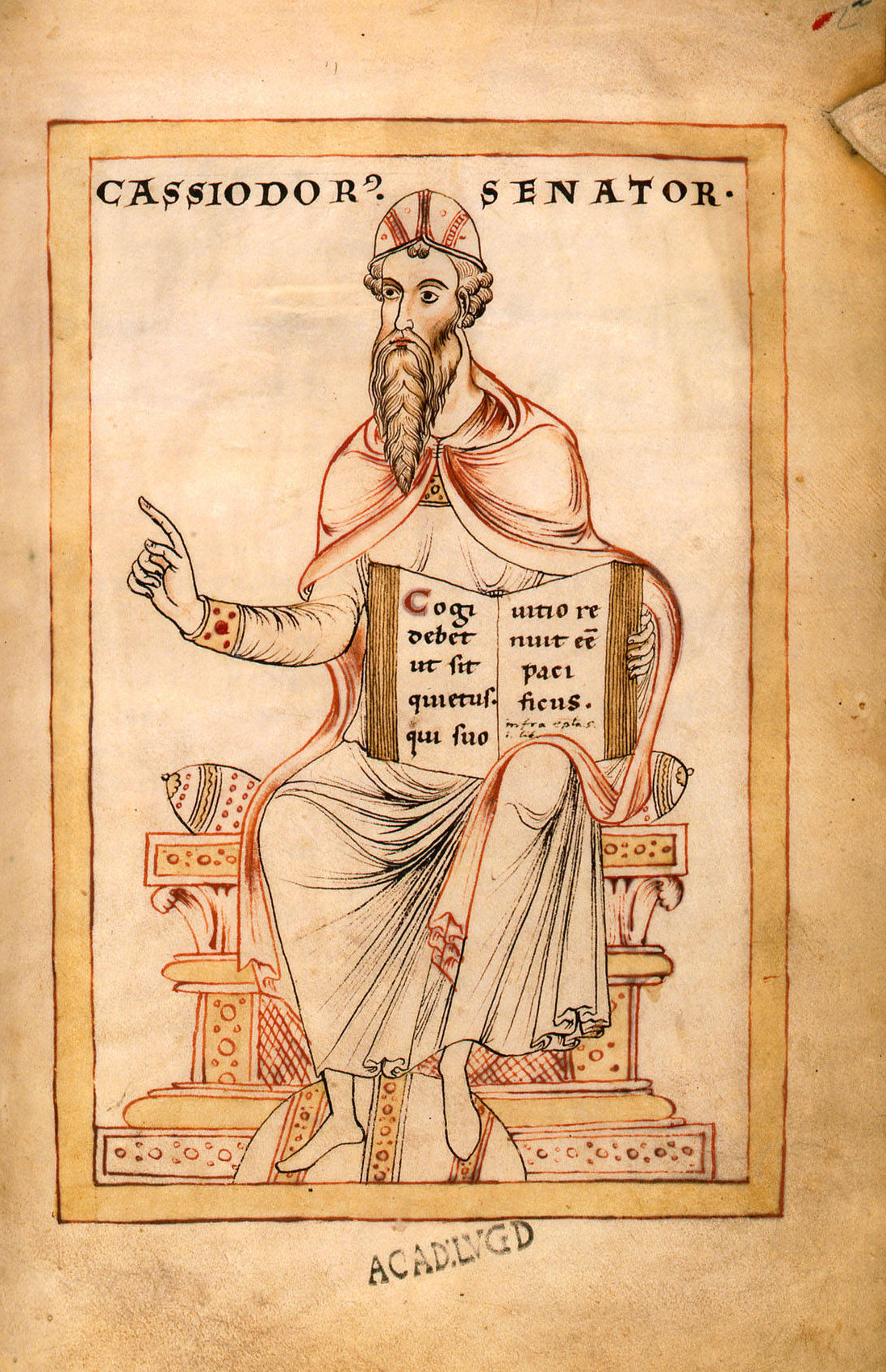Cassiodorus: Citáty v angličtine
“Poverty is the mother of crime.”
Mater criminum necessitas tollitur.
Bk. 9, no. 13; translation from S. Giora Shoham and Gill Sher (eds.) The Many Faces of Crime and Deviance (White Plains, N.Y.: Sheridan House, 1983) p. 32.
Variae
“For, among the world's incertitudes, this thing called arithmetic is established by a sure reasoning that we comprehend as we do the heavenly bodies. It is an intelligible pattern, a beautiful system, that both binds the heavens and preserves the earth. For is there anything that lacks measure, or transcends weight? It includes all, it rules all, and all things have their beauty because they are perceived under its standard.”
Haec enim quae appellatur arithmetica inter ambigua mundi certissima ratione consistit, quam cum caelestibus aequaliter novimus: evidens ordo, pulchra dispositio, cognitio simplex, immobilis scientia, quae et superna continet et terrena custodit. quid est enim quod aut mensuram non habeat aut pondus excedat? omnia complectitur, cuncta moderatur et universa hinc pulchritudinem capiunt, quia sub modo ipsius esse noscuntur.
Bk. 1, no. 10; p. 12.
Variae
“For the school of grammar has primacy: it is the fairest foundation of learning, the glorious mother of eloquence.”
Prima enim grammaticorum schola est fundamentum pulcherrimum litterarum, mater gloriosa facundiae.
Bk. 9, no. 21; p. 122.
Variae
“But who looks for serious conduct at the public shows? A Cato never goes to the circus. Anything said there by the people as they celebrate should be deemed no injury. It is a place that protects excesses. Patient acceptance of their chatter is a proven glory of princes themselves.”
Mores autem graves in spectaculis quis requirat? ad circum nesciunt convenire Catones. quicquid illic a gaudenti populo dicitur, iniuria non putatur. locus est qui defendit excessum. quorum garrulitas si patienter accipitur, ipsos quoque principes ornare monstratur.
Bk. 1, no. 27; p. 19.
Variae
“For what is more glorious than music, which modulates the heavenly system with its sonorous sweetness, and binds together with its virtue the concord of nature which is scattered everywhere?”
Quid enim illa praestantius, quae caeli machinam sonora dulcedine modulatur et naturae convenientiam ubique dispersam virtutis suae gratia comprehendit?
Bk. 2, no. 40; p. 38.
Variae
“Grammar is the mistress of words, the embellisher of the human race; through the practice of the noble reading of ancient authors, she helps us, we know, by her counsels. The barbarian kings do not use her; as is well known, she remains unique to lawful rulers. For the tribes possess arms and the rest; rhetoric is found in sole obedience to the lords of the Romans.”
Grammatica magistra verborum, ornatrix humani generis, quae per exercitationem pulcherrimae lectionis antiquorum nos cognoscitur iuvare consiliis. hac non utuntur barbari reges: apud legales dominos manere cognoscitur singularis. arma enim et reliqua gentes habent: sola reperitur eloquentia, quae Romanorum dominis obsecundat.
Bk. 9, no. 21; p. 122.
Variae
